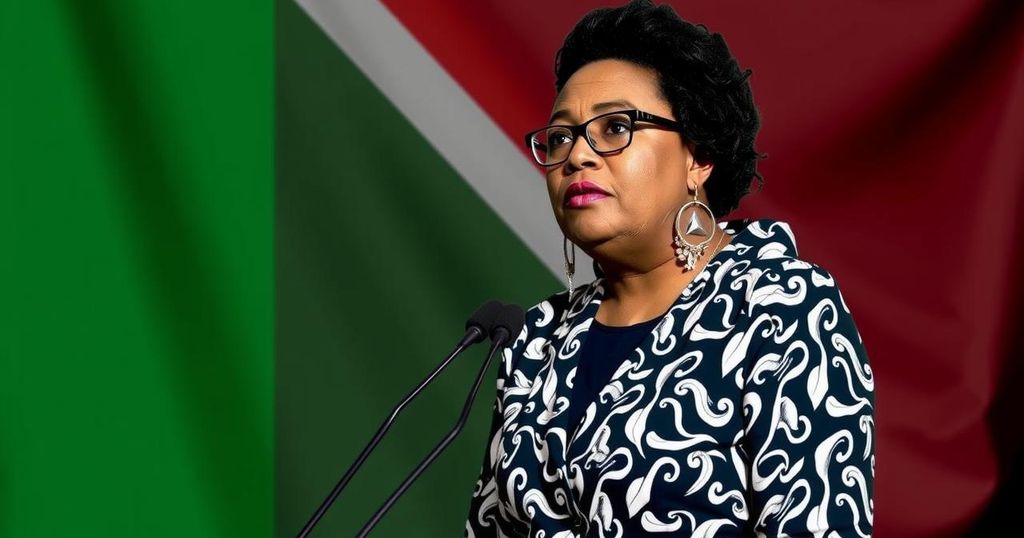Namibia might elect its first female president with Netumbo Nandi-Ndaitwah leading the race. However, she may need a run-off election if her votes do not exceed 50 percent. The election has been marred by disputes over logistics and ballot shortages, with opposition parties challenging its legitimacy. The current political landscape reflects significant youth discontent towards SWAPO’s long tenure.
Namibia is poised to elect its first female president as Netumbo Nandi-Ndaitwah, the candidate for the ruling South West Africa People’s Organisation (SWAPO), leads the presidential election currently under dispute. As of early Tuesday, results from 65.57 percent of the votes indicate that Nandi-Ndaitwah is securing 54.82 percent, though she may need to undergo a run-off if she does not surpass the requisite 50 percent threshold.
The election count has faced significant delays, with initial results expected shortly after voting concluded on November 27. Owing to technical issues and shortages of ballot papers, voting was extended through November 29 and 30 at several stations, inciting controversy and claims of an illegitimate process by opposition parties.
Nandi-Ndaitwah, who is currently the vice president, may require a second round of voting if she does not meet the majority requirement once all results are reported later in the week. Approximately 73 percent of the nearly 1.5 million registered voters participated in the election. Meanwhile, SWAPO is also leading the national assembly elections with around 56.38 percent of votes counted. Furthermore, opposition parties, particularly the Independent Patriots for Change led by Panduleni Itula, have denounced the election as a sham, asserting that they will pursue legal action to contest its validity.
This environment reveals underlying discontent among younger voters towards SWAPO’s prolonged governance since Namibia’s independence in 1990 amidst economic challenges, including high youth unemployment and persistent social inequalities.
The upcoming presidential election in Namibia marks a significant milestone as it positions Netumbo Nandi-Ndaitwah to potentially become the first female president of the country. Historically, SWAPO has been in power since Namibia gained independence, yet the recent electoral processes have faced scrutiny due to logistical problems and complaints of irregularities from opposition parties. The political climate is further complicated by the need for election transparency and fair representation, particularly among disillusioned younger voters who feel left behind by the existing governance structures.
In summary, Namibia is on the verge of potentially electing its first female president, Netumbo Nandi-Ndaitwah, who leads the current election amid disputes regarding the electoral process. With the opposition raising concerns about the legitimacy of the election, there is a looming possibility for legal challenges should the issues surrounding the vote remain unresolved. As the electoral counts continue, the future leadership of Namibia hangs in the balance against a backdrop of historical governance and emerging democratic aspirations from its populace.
Original Source: www.aljazeera.com







